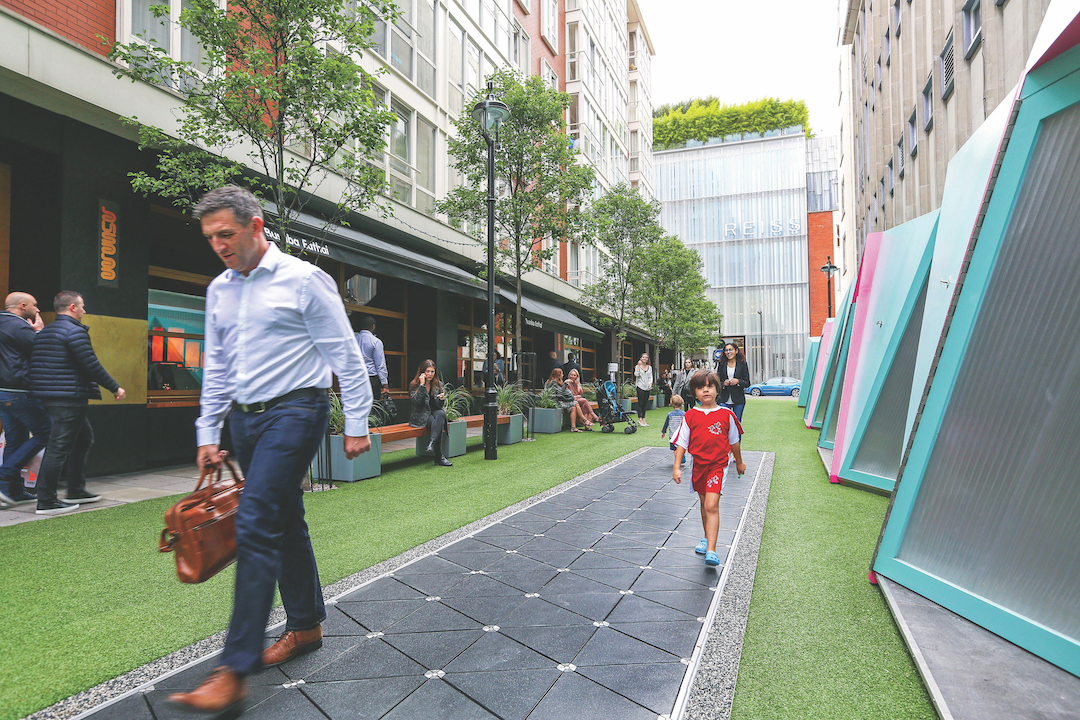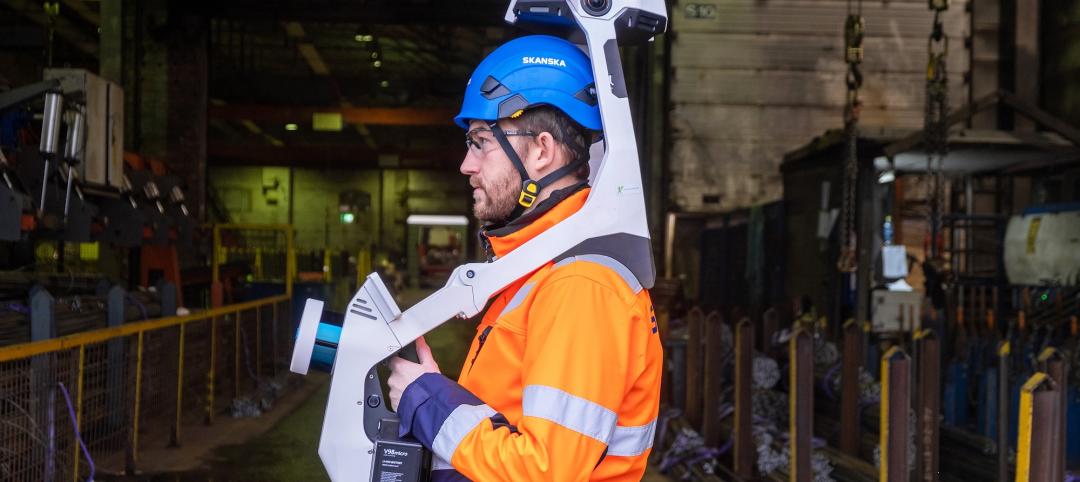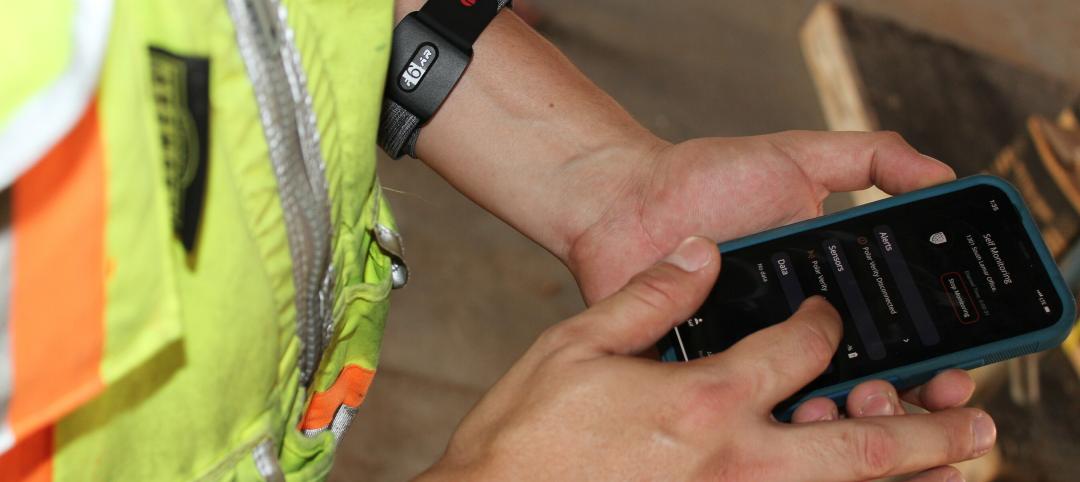You’ve heard of whistling while you work. What about energizing while you walk?
That’s the idea behind Pavegen, a flooring system that generates electrical energy with every step you take. This energy can then be used for powering LED lighting, capturing and transmitting data, and monitoring the environment.
The flooring consists of a series of triangular composite tiles. The triangular shape creates a continuously articulated surface with no dead zones so the system can capture energy from almost every footstep. Each of the triangles’ three corners rests atop an electromagnetic generator. When you step on the tile, the generators are compressed, producing two to four watt-seconds of off-grid electrical energy. The system can be used indoors or outdoors.
Because of the instant feedback, Pavegen creates high engagement with people that allows them to interact physically with sustainability, while providing smart cities, transport hubs, retailers, and brands with a unique source of data collection.
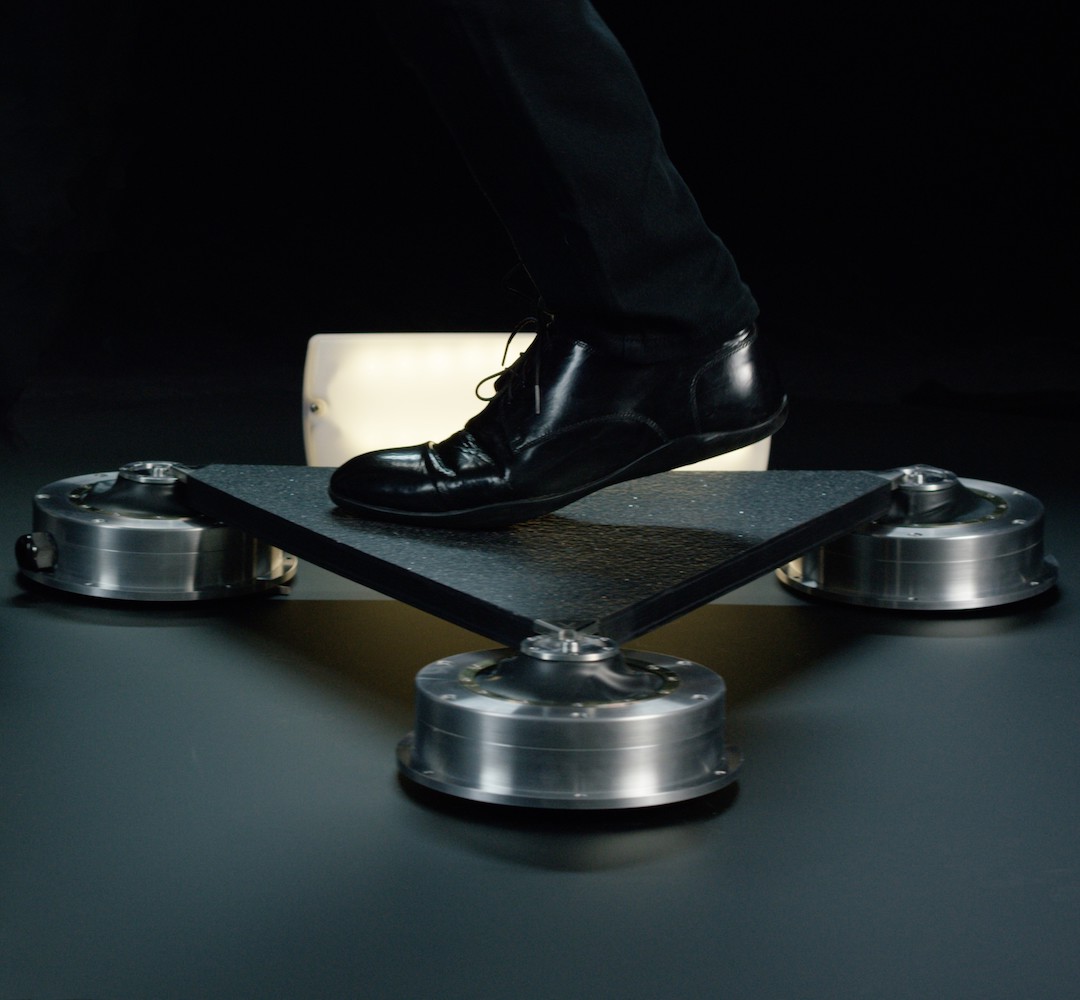 Photo: Pavegen
Photo: Pavegen
Through the use of Bluetooth Low Energy beacons, Pavegen can also communicate with users’ smartphones to provide analytics data via a permission-based rewards system. Through the app, users will be able to see how many joules of energy they have created, how many steps they have taken on the Pavegen surface, and what that energy could have powered, such as seconds of light for a nearby LED installation. Pavegen refers to this triumvirate of powerful human engagement, instant physical feedback, and data and customer analytics as the “Internet of Beings.”
Among the company’s clients are the Abu Dhabi International Airport, Google, Siemens, Transport for London, and Urban Renewal Authority Hong Kong. In the Abu Dhabi International airport, a 16-sm Pavegen walkway between Terminals 1 and 3 collects footsteps from 8,000 travelers a day. The system tracks footfall data, powers lighting along the walkway, and shows how much energy is currently being harvested. It also has a game where children can power airplanes on a screen with the energy they are creating on the walkway.
There’s a Pavegen walkway in the University of Birmingham’s Green Heart, a high-tech outdoor recreation space designed by Churchman Landscape Architects. The university says it is the first school in the U.K. to have a Pavegen walkway.
The University of Birmingham’s Pavegen walkway resides among native flowers, wild plants, and 160 new trees. Data from the walkway is monitored via a cloud-based platform. The electricity it generates powers USB charging stations on nearby benches.
Pavegen has also been deployed at Bird Street, a forgotten side road off Oxford Street in London, to create what Pavegen calls the world’s first smart street. The energy generated is used to power bird sounds by day and lights at night.
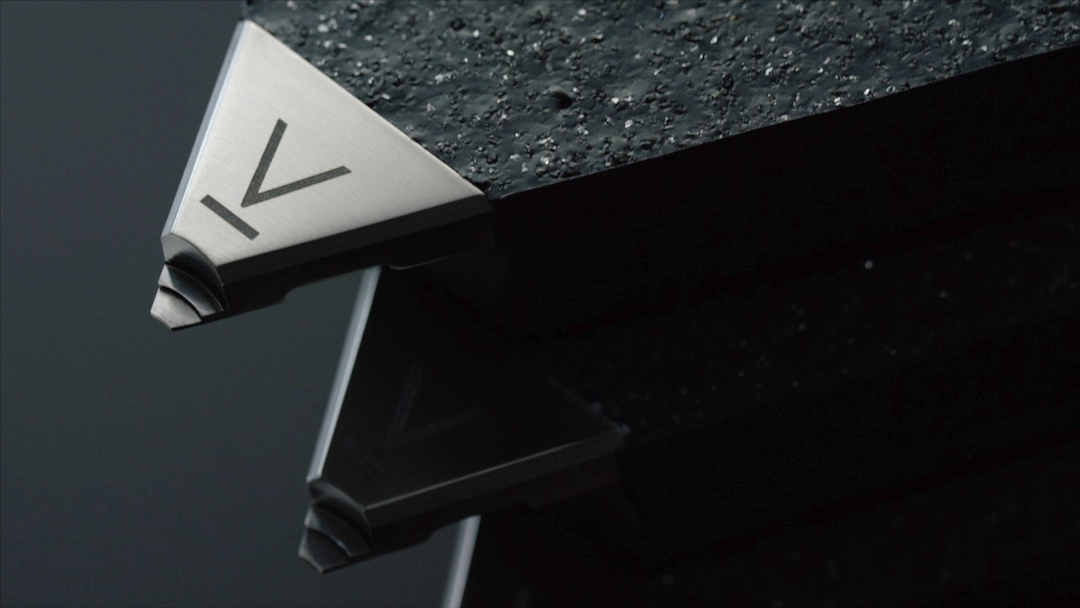 Photo: Pavegen
Photo: Pavegen
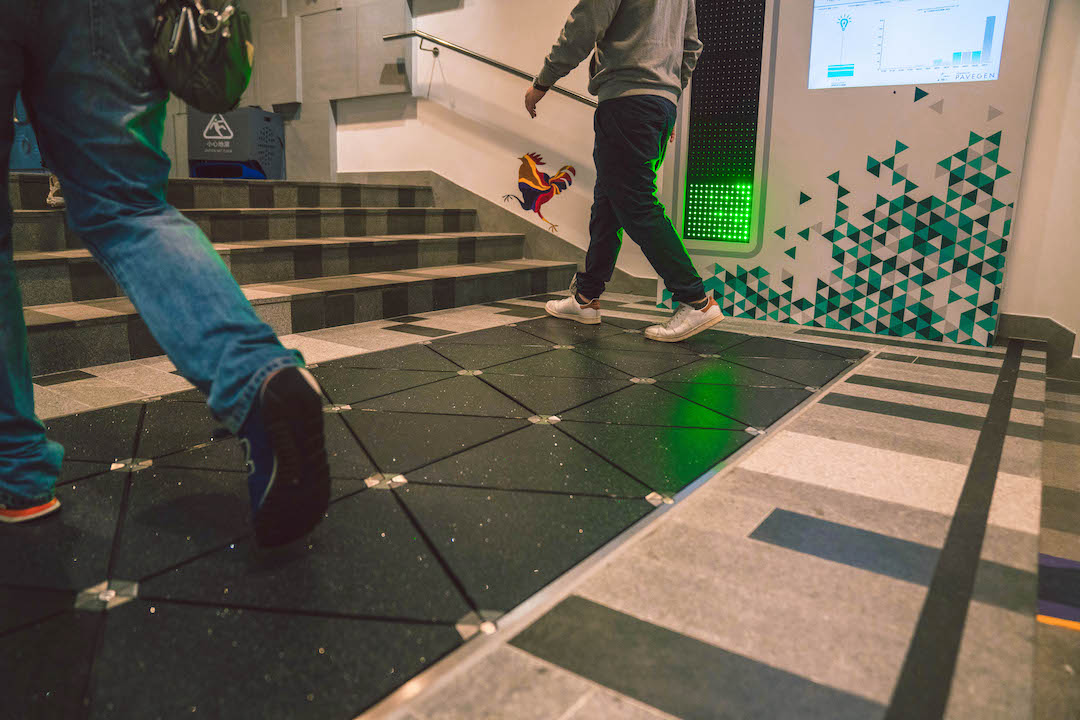 Photo: Pavegen
Photo: Pavegen
Related Stories
3D Printing | Sep 13, 2024
Swiss researchers develop robotic additive manufacturing method that uses earth-based materials—and not cement
Researchers at ETH Zurich, a university in Switzerland, have developed a new robotic additive manufacturing method to help make the construction industry more sustainable. Unlike concrete 3D printing, the process does not require cement.
Smart Buildings | Jul 25, 2024
A Swiss startup devises an intelligent photovoltaic façade that tracks and moves with the sun
Zurich Soft Robotics says Solskin can reduce building energy consumption by up to 80% while producing up to 40% more electricity than comparable façade systems.
Great Solutions | Jul 23, 2024
41 Great Solutions for architects, engineers, and contractors
AI ChatBots, ambient computing, floating MRIs, low-carbon cement, sunshine on demand, next-generation top-down construction. These and 35 other innovations make up our 2024 Great Solutions Report, which highlights fresh ideas and innovations from leading architecture, engineering, and construction firms.
Building Technology | Jun 18, 2024
Could ‘smart’ building facades heat and cool buildings?
A promising research project looks at the possibilities for thermoelectric systems to thermally condition buildings, writes Mahsa Farid Mohajer, Sustainable Building Analyst with Stantec.
75 Top Building Products | Apr 22, 2024
Enter today! BD+C's 75 Top Building Products for 2024
BD+C editors are now accepting submissions for the annual 75 Top Building Products awards. The winners will be featured in the November/December 2024 issue of Building Design+Construction.
AEC Tech | Feb 20, 2024
AI for construction: What kind of tool can artificial intelligence become for AEC teams?
Avoiding the hype and gathering good data are half the battle toward making artificial intelligence tools useful for performing design, operational, and jobsite tasks.
Sustainability | Nov 1, 2023
Researchers create building air leakage detection system using a camera in real time
Researchers at the U.S. Department of Energy’s Oak Ridge National Laboratory have developed a system that uses a camera to detect air leakage from buildings in real time.
Resiliency | Aug 7, 2023
Creative ways cities are seeking to beat urban heat gain
As temperatures in many areas hit record highs this summer, cities around the world are turning to creative solutions to cope with the heat. Here are several creative ways cities are seeking to beat urban heat gain.
AEC Innovators | Jun 15, 2023
Rogers-O'Brien Construction pilots wearables to reduce heat-related injuries on jobsites
Rogers-O'Brien Construction (RO) has launched a pilot program utilizing SafeGuard, a safety-as-a-service platform for real-time health and safety risk assessment. Non-invasive wearables connected to SafeGuard continuously monitor personnel to prevent heat exhaustion on jobsites, reducing the risk of related injuries. RO is the first general contractor to pilot this program.
Office Buildings | May 15, 2023
Sixteen-story office tower will use 40% less energy than an average NYC office building
This month marks the completion of a new 16-story office tower that is being promoted as New York City’s most sustainable office structure. That boast is backed by an innovative HVAC system that features geothermal wells, dedicated outdoor air system (DOAS) units, radiant heating and cooling, and a sophisticated control system to ensure that the elements work optimally together.


